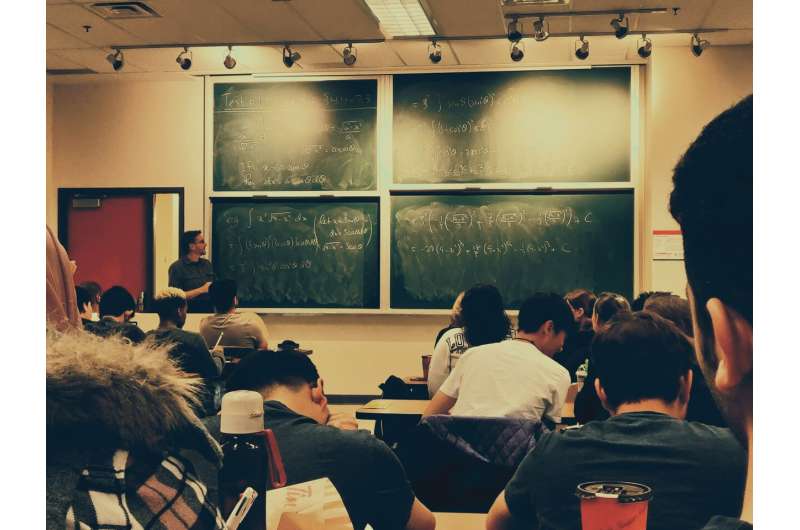
The purpose of education is to ensure that students acquire the skills necessary for succeeding in a world that is constantly changing. Self-assessment, or teaching students how to examine and evaluate their own learning and cognitive processes, has proven to be an effective method, and this competence is partly based on metacognitive knowledge.
A new study conducted at the University of Eastern Finland shows that metacognitive knowledge, i.e., awareness of one’s cognitive processes, is also a key factor in the learning of mathematics. The work is published in the journal Cogent Education.
The study explored thinking skills and possible grade-level differences in children attending comprehensive school in Finland. The researchers investigated 6th, 7th and 9th graders’ metacognitive knowledge in the context of mathematics.
“The study showed that ninth graders excelled at explaining their use of learning strategies, while 7th graders demonstrated proficiency in understanding when and why certain strategies should be used. No other differences between grade levels were observed, which highlights the need for continuous support throughout the learning path,” says Susanna Toikka of the University of Eastern Finland, the first author of the article.
The findings emphasize the need to incorporate elements that support metacognitive knowledge into mathematics learning materials, as well as into teachers’ pedagogical practices.
Self-assessment and understanding of one’s own learning help to face new challenges
Metacognitive knowledge helps students not only to learn mathematics, but also more broadly in self-assessment and lifelong learning. Students who can assess their own learning and understanding are better equipped to face new challenges and adapt to changing environments. Such skills are crucial for lifelong learning, as they enable continuous development and learning throughout life.
“Metacognitive knowledge is a key factor in learning mathematics and problem-solving, but its significance also extends to self-assessment and lifelong learning,” says Toikka.
In schools, metacognitive knowledge can be effectively developed as part of education. Based on earlier studies, Toikka and colleagues have developed a combination of frameworks for metacognitive knowledge, which helps to identify students’ needs for development regarding metacognitive knowledge by offering an alternative perspective to that of traditional developmental psychology.
“This also supports teachers in promoting students’ metacognitive knowledge. Teachers can use the combination of frameworks to design and implement targeted interventions that support students’ skills in lifelong learning.”
According to Toikka, the combination of frameworks enhances understanding of metacognitive knowledge and helps to identify areas where individual support is needed: “This type of understanding is crucial for the development of metacognitive knowledge among diverse learners.”
More information:
Susanna Toikka et al, Combined conceptualisations of metacognitive knowledge to understand students’ mathematical problem-solving, Cogent Education (2024). DOI: 10.1080/2331186X.2024.2357901
Citation:
Students’ awareness of their cognitive processes facilitates the learning of math, finds study (2024, June 19)
retrieved 20 June 2024
from https://phys.org/news/2024-06-students-awareness-cognitive-math.html
This document is subject to copyright. Apart from any fair dealing for the purpose of private study or research, no
part may be reproduced without the written permission. The content is provided for information purposes only.







